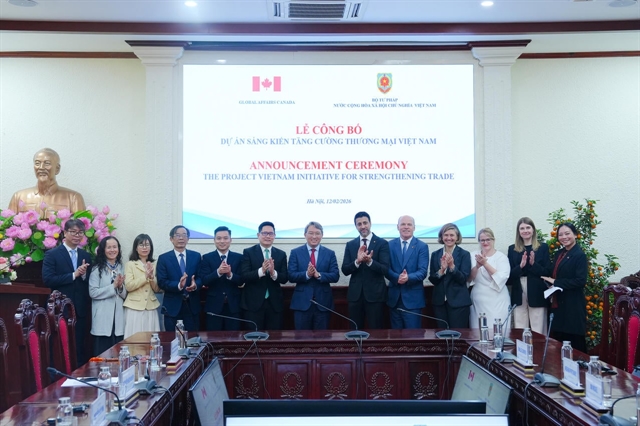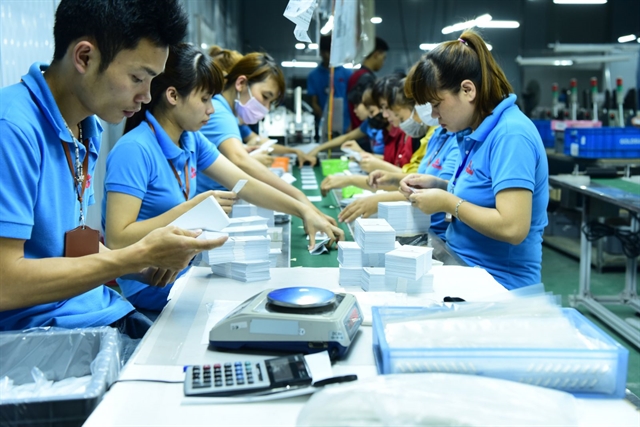 Economy
Economy


|
| Young workers at a Goldsun Packaging and Printing Co factory in the northern province of Bắc Ninh. Việt Nam's Central Economics Committee is urged to research how to utilise the country's golden population which could create a driving force for national development. Photo kinhtevadubao.vn |
HÀ NỘI — Prime Minister Nguyễn Xuân Phúc has asked the Communist Party of Việt Nam's Central Economics Committee (CEC) to develop an innovative economic mindset.
Attending the CEC’s conference to review activities in 2019 and set tasks for 2020 yesterday in Hà Nội, PM Phúc appreciated the CEC’s efforts over the last seven years since it was re-established to advise the Party Central Committee, especially in 2019 with increasingly comprehensive activities to meet new requirements.
He said for leading and guiding the country's economic development, the CEC should target high quality projects that meet the needs of the current technology era.
Phúc emphasised: "The institution is changed but the economic mindset has not.”
If unpredictable situations continue in the region and the world, the PM told the CEC to unite and co-ordinate better with other ministries, departments and the Government.
He also asked the CEC to continue researching a strategic plan for 2020 to deal with climate change.
Phúc also asked the committee to work on an adjusted plan for the country’s industrialisation that matched the world’s climate change adaptation efforts.
At the same time, he told the committee to create more detailed policies for technology transfer and the local manufacturing industry.
Saying that Việt Nam has 28 coastal provinces and cities, Phúc asked the CEC to develop a plan for the marine economy to take advantage of its potential.
Phúc also asked the committee to research how to utilise the country's golden population, especially the middle class, which could create a driving force for national development.
According to a CEC report, it led the development of eight major projects, assigned by the Politburo last year.
These were important projects that produced development guidelines for agriculture, farmers and rural areas, responding to climate change, taking opportunities from the Fourth Industrial Revolution and ensuring energy security.— VNS